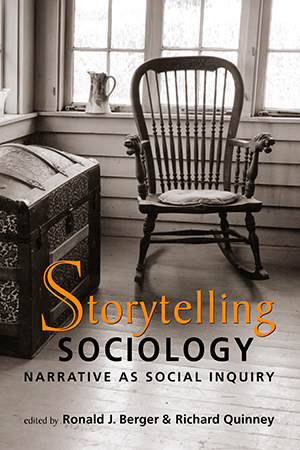
- 2004/307 pages
Storytelling Sociology:
Narrative as Social Inquiry
The book is organized around four themes—family and place, the body, education and work, and the passage of time—that tell a story about the life course and touch on a wide range of enduring sociological topics. The first chapter explores some of the theories of narrative that mark contemporary social analysis. Introductions to the four sections identify the sociological themes that the essays reflect. The heart of the book, however, is not about narrative but of narrative: scholars who have been involved in class, racial/ethnic, gender, sexual orientation, and disability studies compellingly write about their own life experiences.
Storytelling Sociology is essential reading for all those who want to learn about narrative inquiry, teach about it, or develop a "storied" approach in their own work.







